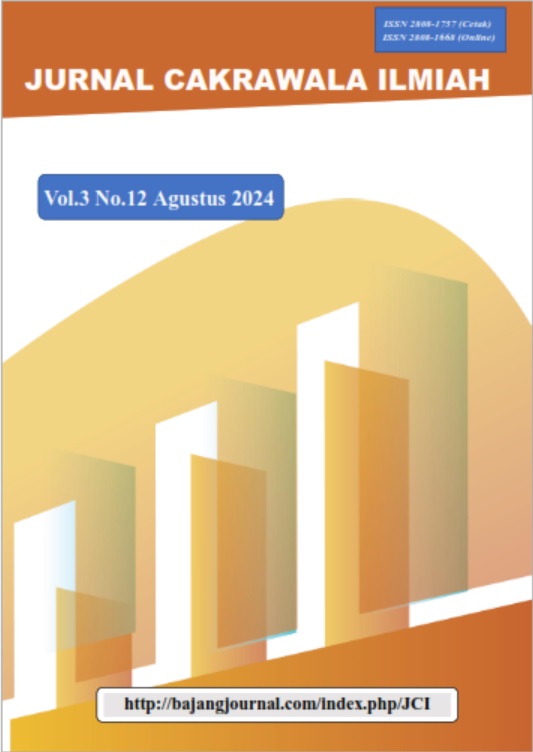PENERAPAN PRINSIP GOOD GOVERNANCE DALAM MANAJEMEN ORGANISASI KECAMATAN TATANGA KOTA PALU
Keywords:
Good Governance, accountability, participation, responsiveness, professionalism, local government, Tatanga DistrictAbstract
This study examines the implementation of Good Governance principles in the organizational management of Tatanga District, Palu City, with a focus on accountability, participation, responsiveness, and professionalism. The research employs a qualitative approach, utilizing interviews, observations, and document analysis to gather data. The findings reveal significant challenges in applying these principles effectively. Accountability mechanisms are found to be weak, with limited transparency in financial reporting and performance evaluation. Public participation in decision-making processes remains low, hindering community involvement in local development planning. The district government's responsiveness to public complaints and urgent issues is notably slow, affecting service delivery. Additionally, the professionalism of district staff requires improvement, with inadequate technical competencies and limited continuous professional. development programs. The study concludes that substantial efforts are needed to enhance these aspects of governance in Tatanga District. Recommendations include developing a more transparent accountability system, increasing public participation forums, implementing a more responsive complaint handling mechanism, and establishing comprehensive staff competency development programs. These improvements are crucial for enhancing the quality of public services and promoting community welfare in Tatanga District.
References
Abdulkadir Muhammad, 2006. Hukum dan Penelitian Hukum, PT. Citra Aditya Bakti, Bandung.
Fitriani Abdullah (2021).pdf. (t.t.). IMPLEMentasi Penanganan Konflik Sosial Di Luwuk Kabupaten Banggai. Jurnal Inovasi Penelitian
Haeli (2020).pdf. (t.t.). PENERAPAN PRINSIP- PRINSip Good Governance Pada Pemerintah Daerah Provinsi Nusa Tenggara Barat (Studi Kasus). Jurnal Bestari
Callahan, K. (2007). Elements of Effective Governance: Measurement, Accountability and Participation. Boca Raton: CRC Press.
Denhardt, J. V., & Denhardt, R. B. (2015). The New Public Service: Serving, Not Steering. New York: Routledge.
Lembaga Administrasi Negara. (2000). Akuntabilitas dan Good Governance. Jakarta: LAN.
Mardiasmo. (2018). Akuntansi Sektor Publik. Yogyakarta: Andi.
Mulgan, R. (2003). Holding Power to Account: Accountability in Modern Democracies. Basingstoke: Palgrave Macmillan.
Nugroho, R. (2017). Public Policy. Jakarta: Elex Media Komputindo.
Osborne, D., & Gaebler, T. (1992). Reinventing Government: How the Entrepreneurial Spirit is Transforming the Public Sector. Reading, MA: Addison-Wesley.
Prasojo, E. (2020). Reformasi Birokrasi di Indonesia. Jakarta: Prenadamedia Group.
Thoha, M. (2014). Birokrasi Politik dan Pemilihan Umum di Indonesia. Jakarta: Kencana.
Tjokroamidjojo, B. (2001). Good Governance: Paradigma Baru Manajemen Pembangunan. Jakarta: UI Press.
Widodo, J. (2001). Good Governance: Telaah dari Dimensi Akuntabilitas dan Kontrol Birokrasi pada Era Desentralisasi dan Otonomi Daerah. Surabaya: Insan Cendekia.
United Nations Development Programme (UNDP). (1997). Governance for Sustainable Human Development. New York: UNDP.
World Bank. (1992). Governance and Development. Washington, DC: The World Bank.
Downloads
Published
How to Cite
Issue
Section
License
Copyright (c) 2024 Jurnal Cakrawala Ilmiah

This work is licensed under a Creative Commons Attribution-NonCommercial 4.0 International License.
















